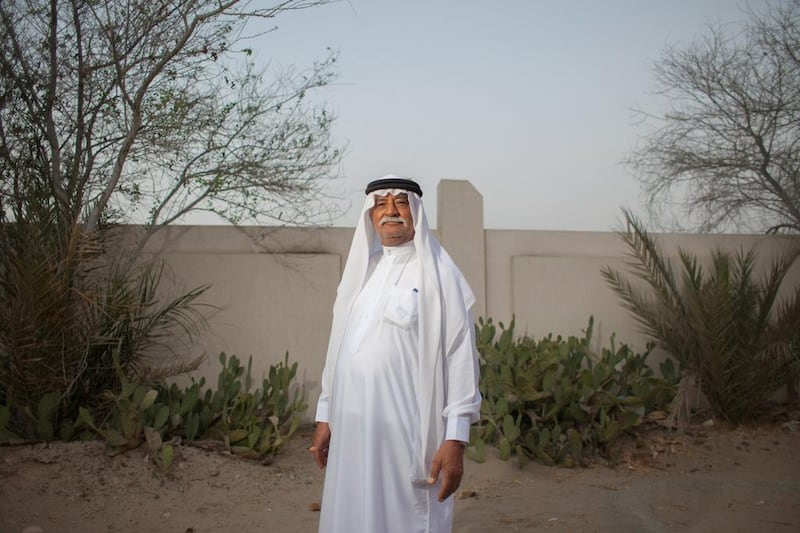ABU DHABI // A simple drink of water, available to most of the developed world at the turn of the tap or, at most, a trip to the grocery shop, was a six-hour ordeal for Abdulaziz Al Qassab when he was growing up in Dubai in the 1950s.
For the first half of his life Mr Al Qassab, 70, worked as a butcher, herder, trader, merchant, store keeper, electrician and a water bearer.
“A man made himself, in those days, through hard work,” he said.
“From when you’re very young, only 10 years old, is when you begin to work. You worked because that was what mattered.”
In 1955, the nearest school taught reading through the Quran, and the dirham was not yet in circulation. Like many Arabian Gulf states, it was the Indian rupee that dictated business deals, of which Mr Al Qassab had many.
“I speak just for myself, but I’ve worked all kinds of jobs to make a living, to make money through whatever it took. But in those days, your worth was in your work.”
By the time he was 15, Mr Al Qassab had grown strong enough to take up a job that could yield him much more than what he earned through herding: bringing water to Dubai.
Living in the Old Souk, where Deira bus station is now, Mr Al Qassab would walk eight kilometres to the nearest water well, in Beda’a, near Satwa, to collect almost 100 litres of water. He carried it on a donkey back to his neighbourhood, selling it for a rupee. The modern-day equivalent is Dh8.
Today, Mr Al Qassab’s four-hour trip to collect 100 litres of drinking water would yield him Dh80.
“We’d even be lucky to get that money. People would tell us that they’ll pay us later. Sometimes later never came and other times we got paid, but we’d keep tally of who didn’t pay so we could know how to treat them,” he said.
A rope he always carried indicated how many rupees were owed to him – each knot in the rope was equal to one rupee.
Mr Al Qassab lived in the last area of Dubai to be developed by modern infrastructure, which meant that his trips to the water well extended well into his teenage years, the water a source of income and for personal use.
“Everyone gets tired, everyone goes through tough times. But one thing remains the same. We must love our country, we need to look after it, the land and what is built upon it,” he said.
According to Statistics Centre Abu Dhabi, the UAE in the early 1950s was a far cry from what it is now. Steady employment was a foreign concept, literacy among men was at 10 per cent and even fewer women could read. People earned a fraction of what they do now, and there was hardly any semblance of what are now modern cities.
But in those days, money was less important and the measures of success were different.
“This is my city, my country, my people,” Mr Al Qassab said.
“I love them all. Modern Dubai brought to us commerce and industry, it brought to us these great towers and advancement in technology and development, but it was old Dubai that taught us how to be men.”
nalwasmi@thenational.ae






